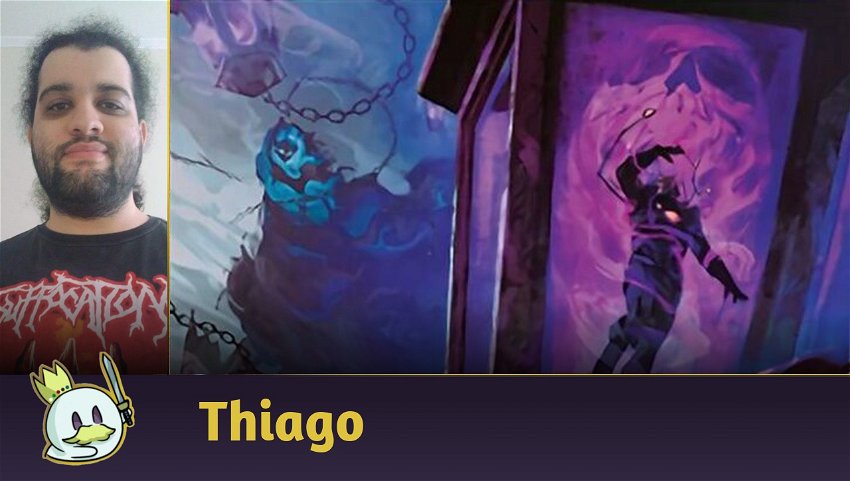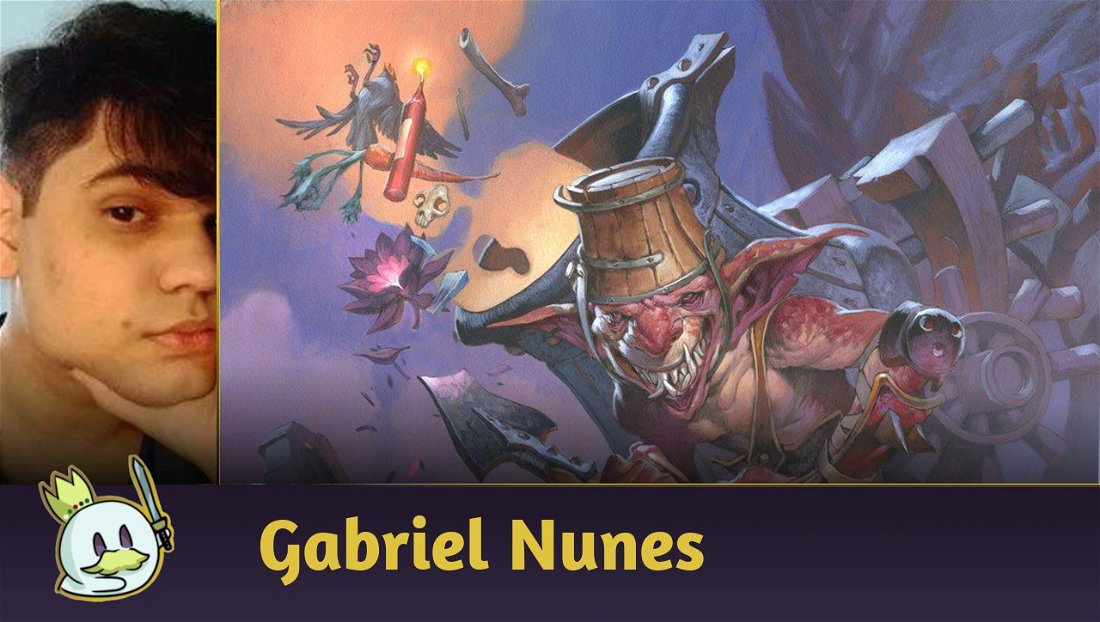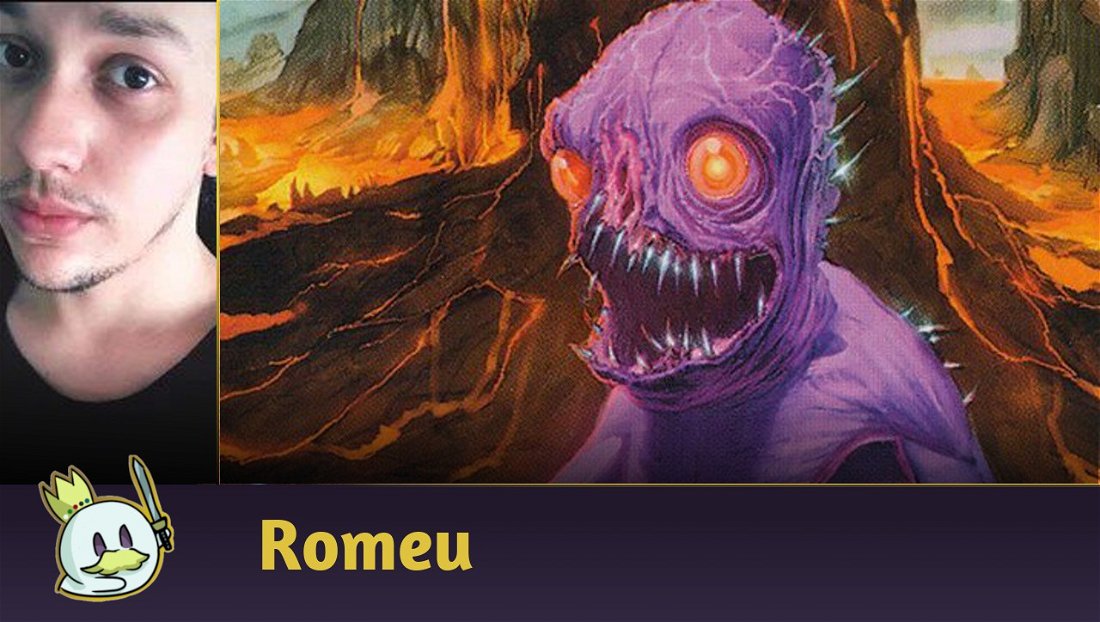Today we're going to step out of Magic's competitive scope a bit and talk about some tribal decks we have in the current Standard. Obviously, I won't be able to cover all the tribes because we even have frog-like creatures, but I'll comment on the main decks used with the theme.
Innistrad's two most recent sets brought several wolves, vampires, humans, dragons, zombies and spirits into the format, updating existing tribal decks. A very popular creature type that hasn't been updated in these sets is elves, so we don't have much to comment on from a list that's pretty much the same since Forgotten Realms.
Ad
Spirits
The first tribe we will talk about is Spirits. With nice additions to the archetype, Azorius Spirits emerges as a tempo deck to try and punish Control. Katilda, Dawnhart Martyr is highlighted as the tribal's payoff, but Geistlight Snare and Fleeting Spirit also bring more resilience to the deck by countering spells or returning creatures from the graveyard.
The problem with straying to this list's theme is not using cards like Elite Spellbinder and Thalia, Guardian of Thraben, which are excellent in Tempo decks, but it's still an interesting option.
Wolves
Gruul Wolves remains very similar to its Midnight Hunt version, but Crimson Vow covered some flaws of the archetype. Ascendant Packleader is a great one-drop that every green aggressive deck needed, Cemetery Prowler as well as being a good three-drop, it's graveyard hate, Volatile Arsonist comes as curve top with haste and menace that still deals damage to opponents when attacking.
The star of the new set is Avabruck Caretaker who basically wins the game when it comes into play as Nightbound. Exceptional creature for aggro mirrors when the board is locked in mid/late game, or finisher for when we are ahead.
Humans
This tribal received a lot of strength with Midnight Hunt and Crimson Vow, being a good aggressive deck in the format. Hopeful Initiate is a one-drop that easily gets out of hand, especially with Luminarch Aspirant growing creatures every turn. Thalia has altered the balance of Standard, so her impact is certainly very high in any white aggro deck, and her being human brings even more synergy to the deck.
However, one card that surprised me as an anti-aggro tech is Hamlet Vanguard.

It has the potential to enter larger than any other creature on the board and has Ward 2, delaying any kind of interaction. When the board is locked on the floor with many creatures, he forces bad blocks so as not to deal absurd damage in an attack. If we have any Selesnya seeing play in the format, I believe that card will be on the list, especially if Mono Green remains a popular deck, which is almost certain.
Dragons
Izzet Dragons is one of the best decks in the format, but here I made some modifications to turn it into a dragon tribal with cards that aren't used much at the moment, like Manaform Hellkite and Iymrith, Desert Doom.
The base of the deck is similar to the standard core, we have these two dragons that don't see much play these days because they don't fit well into the strategy.
Vampires
The Rakdos Vampires list is from the Hall of Famer Gabriel Nassif who achieved the mythic number 1 with it. Although I don't find it competitive, it's good against aggressive decks, as by definition Rakdos is a pile of removals, and both Innistrad brought a lot of vampire-type cards.
The interesting thing about this deck is that it takes advantage of the blood tokens to cycle bad cards from the hand, besides having synergy with Bloodvial Purveyor, Bloodtithe Harvester and Voldaren Bloodcaster. It seems to me to be one of the most polished versions of vampires for the format, even the numbers on the sideboard were well-thought-out for the metagame, something not surprising considering a deck made by one of the best players of all time!
Ad
Zombies
The next deck is the zombie tribal that got some great cards to support the archetype. Skull Skaab comes to increase board presence by sacrificing unimportant creatures to generate a 2/2 token, Overcharged Amalgam is very appealing for its versatility as a 3/3 flash flying that can counter spells or abilities, and Graf Reaver is the dream two-drop of any aggressive deck.

The main payoff of the set for zombies is Geralf, Visionary Stitcher which gives evasion to all your zombies and can create a gigantic token, especially if combined with Champion of the Perished.
Clerics
The next tribal deck is Clerics. The list is from Grzegorz Kowalski of the Rivals League, and he considers this one of the best decks in Standard, as it is good against aggro. Obviously, I don't dream as high as he does at this point, but the deck is quite interesting at the moment and has received a very synergistic card in life gain decks, Voice of the Blessed. Shattered Sanctum is another important card that has brought more consistency to the deck by granting mana from both deck colors.
The problem with the archetype is that it doesn't beat any mid/control/combo list with blue, in other words, a significant portion of the format, and that's why I don't consider it as good as other anti-aggro options.
Wizards
The last list in the article is an Izzet Wizards. First I must say that I valued the fun above the best possible list because we know that Alrund's Epiphany, Divide By Zero + Lessons, Memory Deluge and other cards would make the deck much better, but it's not that's the purpose here. The deck's idea is to use Eruth, Tormented Prophet to generate a lot of advantage and reuse the spells cast with Lier, Disciple of the Drowned.
The deck works a lot with the graveyard and card advantage, so much so that we use Inspired Idea to draw cards, even on turn 3 or 4 without activating the cleave ability because we don't need many cards in the hand with Lier and/or Eruth at the board
The plan is similar to Izzet Control: leave one of these creatures on the board and never lose control of the match, the difference is that we have 4 Play With Fire to be more proactive with potential 16 direct damage spells.
Conclusion
And that's it for today! Some tribes such as elf, warrior, shaman, and shapeshifter were left out in the article as they didn't have relevant cards in the last two sets or didn't have much support in the format, but I tried to address the most played tribal decks in Arena.
Any questions, comments or feedback I'm available in the comments below.









— Comments0
Be the first to comment